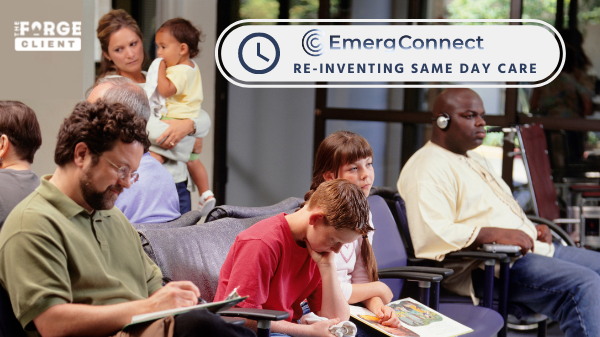
EmergConnect prioritizes convenience, streamlining clerical work and optimizing wait times
EmergConnect’s game-changing digital platform is aiming to improve patient satisfaction, alleviate clinician clerical workloads, and improve efficiency by streamlining medical administration efforts.
EmergConnect offers the first-ever centralized digital platform for every step in patient registration, digital triage, individualized wait time predictions and ideal care environment redirection.
Founder and CEO, Ron Galaev, sees his platform as a “digital front door” allowing patients to register, triage themselves, and receive individualized wait times, all while still at home.
EmergConnect prioritizes convenience and in addition to streamlining clerical work and wait times, while creating a platform that directs patients to the care that best suits their needs.
“It’s a simple mobile app where a person puts in their symptoms, then they can see which care providers are relevant to them, if they will be considered a low acuity patient, or if they are better suited to address specific complaints with alternative care providers. They will also find out how long they are going to wait,” he said. “On the hospital side, it really helps to reduce the clerical workload for nurses and registration clerks, allowing for cost savings and freeing up time”.
Backed by cutting-edge artificial intelligence, EmergConnect fundamentally changes same-day care in four key ways: Improving patient satisfaction, reducing clinician burnout, improving system efficiency, and reducing cost of care.
Improving patient satisfaction is paramount. Average hospital wait times fluctuate drastically; in 2019, the average Ontario wait time was over 16 hours, by May 2020 wait times were about an hour and a half. Without an app like EmergConnect patients would sit and wait stressed and in discomfort with minimal communication. They could spend an hour in the ER or the better part of a day. EmergConnect improves patient experiences, timeliness of care, and access to care while reducing patient stress and risk of infectious disease transmission including COVID-19.
“If anyone has ever waited in a waiting room, I think the only topic on their mind is how long am I going to wait to be seen,” says Galaev. “For the first time the innovative system uses AI to collect a patient’s data and predict their wait time in that emergency department.”
EmergConnect decreases the cost of care for the health system overall and per patient for providers. EmergConnect’s ideal care environment redirection technology ensures patients are finding the most appropriate caregiver.
“A big problem in Canada is that patients don’t know what’s available to them. And they just end up going to the emergency department. And this is both expensive and inefficient, and it’s bad for the patient. With EmergConnect they know where to go and what to do,” says Galaev.
This minimalizes the cost of care for patients and helps improve system efficiency. By reducing the number of patients seeking inappropriate care and optimizing workflows for providers EmergConnect addresses systemic inefficiencies.
EmergConnect affords clinicians the opportunity to spend less time at their computers and more time taking care of patients. Trimming administrative tasks from healthcare workers day-to-day comes at a vital time with COVID-19 leading to all-time highs in a feeling of burnout among physicians.
In a recent survey, the Canadian Medical Association’s (CMA) National Physician Health Survey, revealed 53 percent of physicians and medical learners have experienced high levels of burnout, compared to 30 percent in a 2017 study. The survey also found that 46 percent of doctors are considering reducing their clinical work in the next two years.
“We are aiming to decrease the amount of time that individual steps take, not by reducing the amount of clinical work that’s done but the clerical work that is being done. Triage nurses and registration clerks have a huge clerical burden where they’re inputting data, which patients can input themselves. This consumes time and increases errors. Anytime anyone is transferring data, with a human involved, there’s the possibility for error,” said Galaev.
EmergConnect is a client at The Forge – a business incubator funded by McMaster University, serving novel and scalable startups in the Hamilton, Greater Toronto, and Niagara Regions.
To learn how EmergConnect is reinventing same-day care, visit them online today – www.emergconnect.ca







